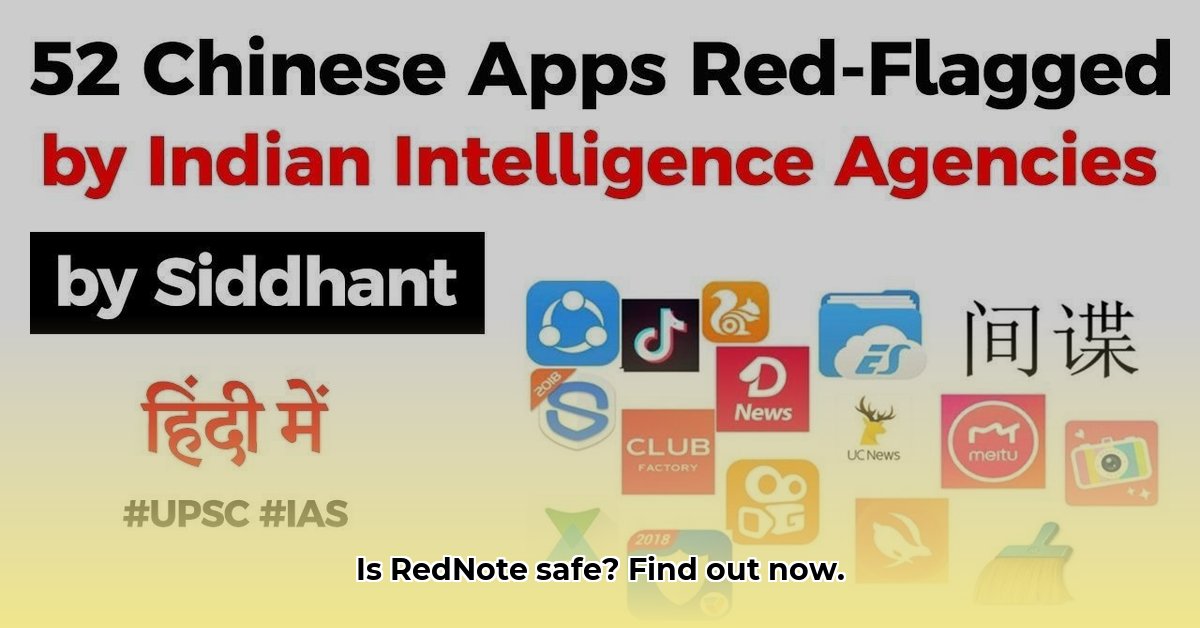RedNote Security: What US Users Need to Know
RedNote (Xiaohongshu), a Chinese-owned social media and e-commerce app, has surged in popularity, particularly in the US, amidst uncertainty surrounding TikTok’s future. While offering a similar blend of short-form videos and shopping features, RedNote’s ownership raises significant security and privacy concerns for American users. Should you trust it with your data?
Data Privacy Under Chinese Law
A key concern is the potential impact of China’s national security laws. These laws can compel companies operating in China, like RedNote, to share user data with the government upon request. While RedNote’s privacy policy outlines data collection practices, Chinese law effectively overrides these policies. This means your data, regardless of RedNote’s stated intentions, could be accessible to the Chinese government. This legal framework differs significantly from that of the US, where user data protections are generally stronger.
This situation echoes concerns previously raised about TikTok, another Chinese-owned app. While no definitive public evidence exists of RedNote sharing data with the Chinese government, the legal possibility is undeniable. Further, Taiwan’s decision to restrict RedNote’s use among government officials due to security concerns further underscores these potential risks.
What RedNote Collects and Why It Matters
RedNote collects a range of user data, including content you create, device information, and browsing behavior. This information is likely utilized for content personalization and targeted advertising, practices common among social media platforms. However, the potential for this data to be accessed by the Chinese government under national security laws raises significant privacy concerns.
While some experts suggest data anonymization and aggregation mitigate these risks, others argue that the line between anonymized and personally identifiable information can be blurry. Ongoing research explores these complexities, but the current lack of transparency from RedNote regarding their data handling practices only exacerbates existing concerns.
Examining the Alternatives: Are There Safer Options?
For US users concerned about data privacy, exploring alternative platforms may be prudent. US-based options like Instagram Reels and YouTube Shorts operate under US law, generally offering stronger data protection and greater transparency.
| Feature | RedNote | Instagram Reels | YouTube Shorts |
|---|---|---|---|
| Ownership | Chinese | US | US |
| Data Privacy | Concerns due to Chinese national security laws | Generally Strong | Generally Strong |
| Government Access | Potential access under Chinese law | Limited by US law | Limited by US law |
While these platforms also collect user data, they are subject to US legal frameworks that provide more robust user privacy protections. This comparison isn’t to demonize RedNote but to empower users to make informed choices about their digital security.
Protecting Your Digital Footprint: A Cautious Approach
Ultimately, the decision of whether or not to use RedNote is a personal one. However, proceeding with caution is highly recommended. Here are some key steps to take:
- Scrutinize RedNote’s Privacy Policy: While lengthy and complex, understanding the key aspects of their data collection practices is crucial.
- Adjust Privacy Settings: Explore RedNote’s privacy settings and restrict data access wherever possible.
- Consider the Risks: Weigh the benefits of using RedNote against the potential risks to your data privacy.
- Explore Alternatives: Investigate other platforms that offer similar features with stronger privacy protections.
- Stay Informed: Keep abreast of evolving news and analysis regarding RedNote and its security practices.
The digital landscape is ever-changing. By staying informed and prioritizing your data security, you can navigate the online world more safely and confidently. This article is intended for informational purposes only and does not constitute legal advice. The situation surrounding RedNote and its data practices is subject to change, and further research is ongoing.







